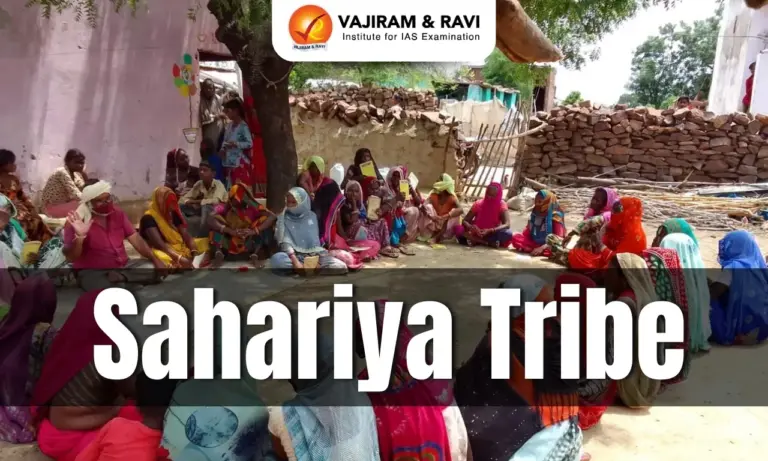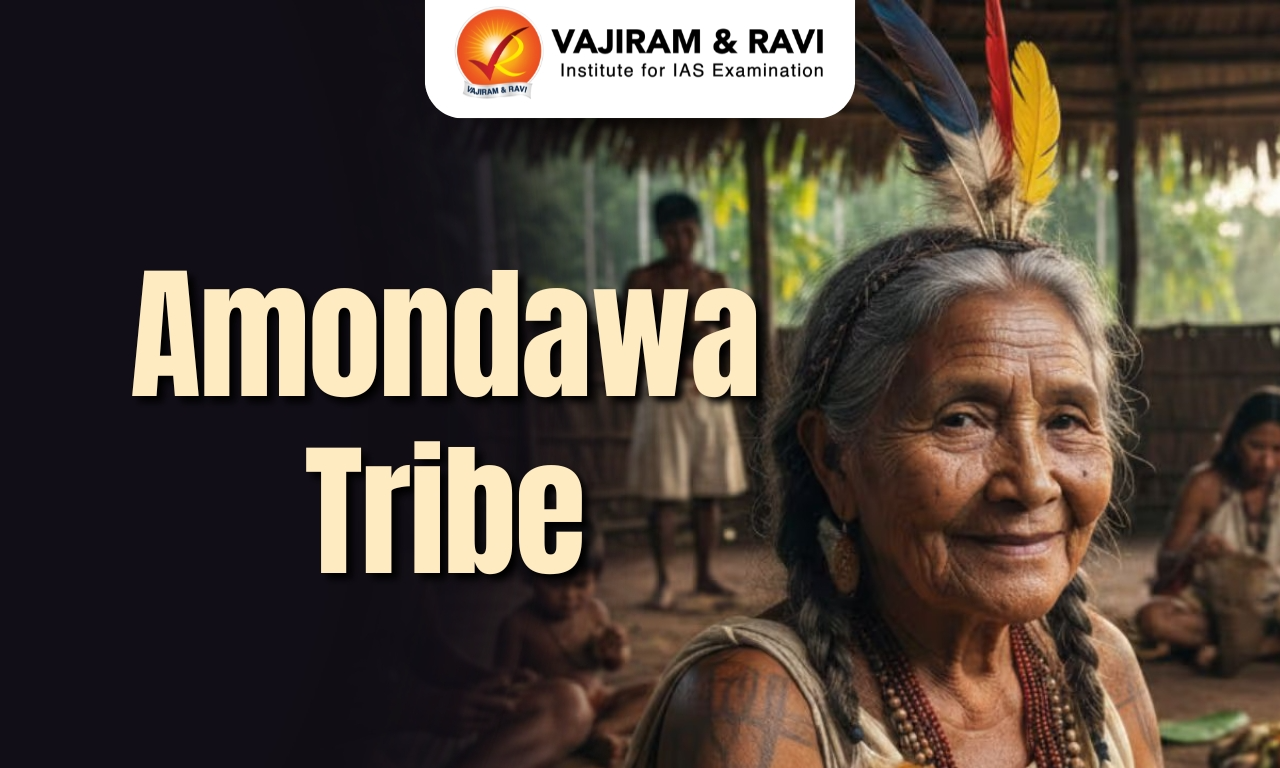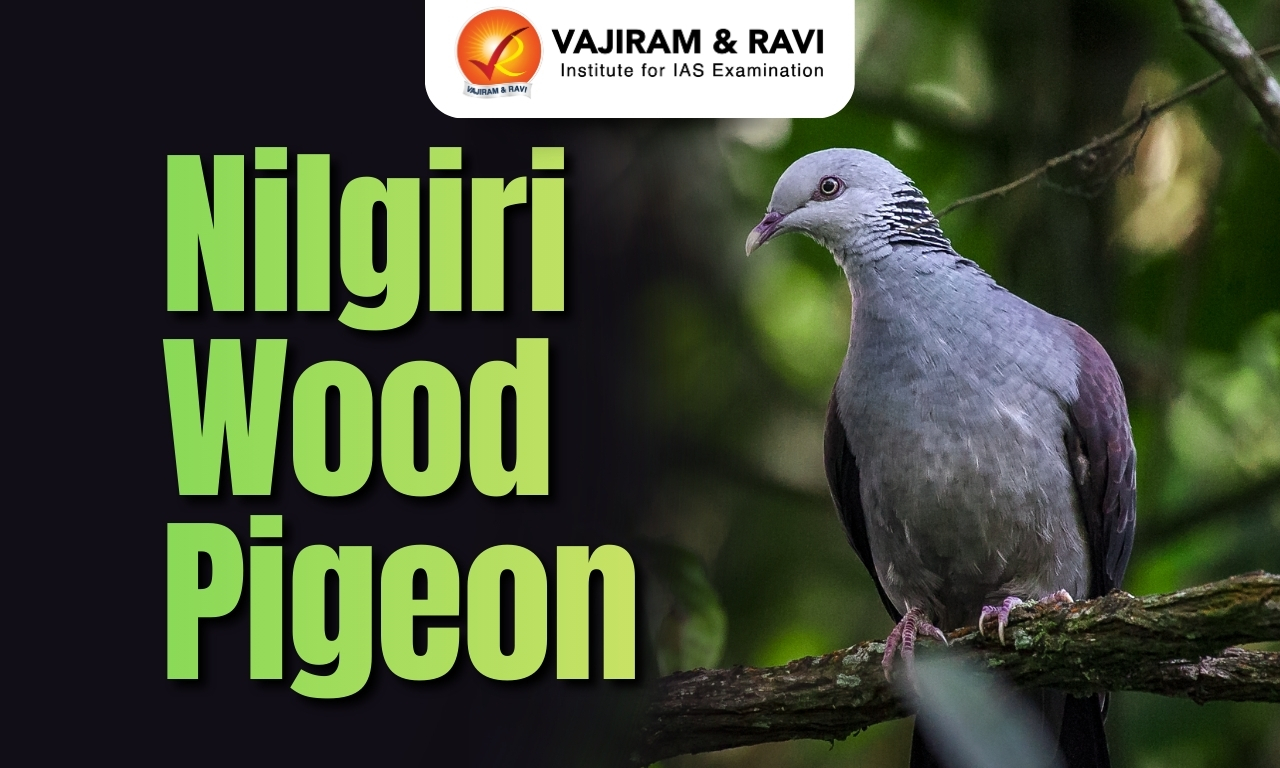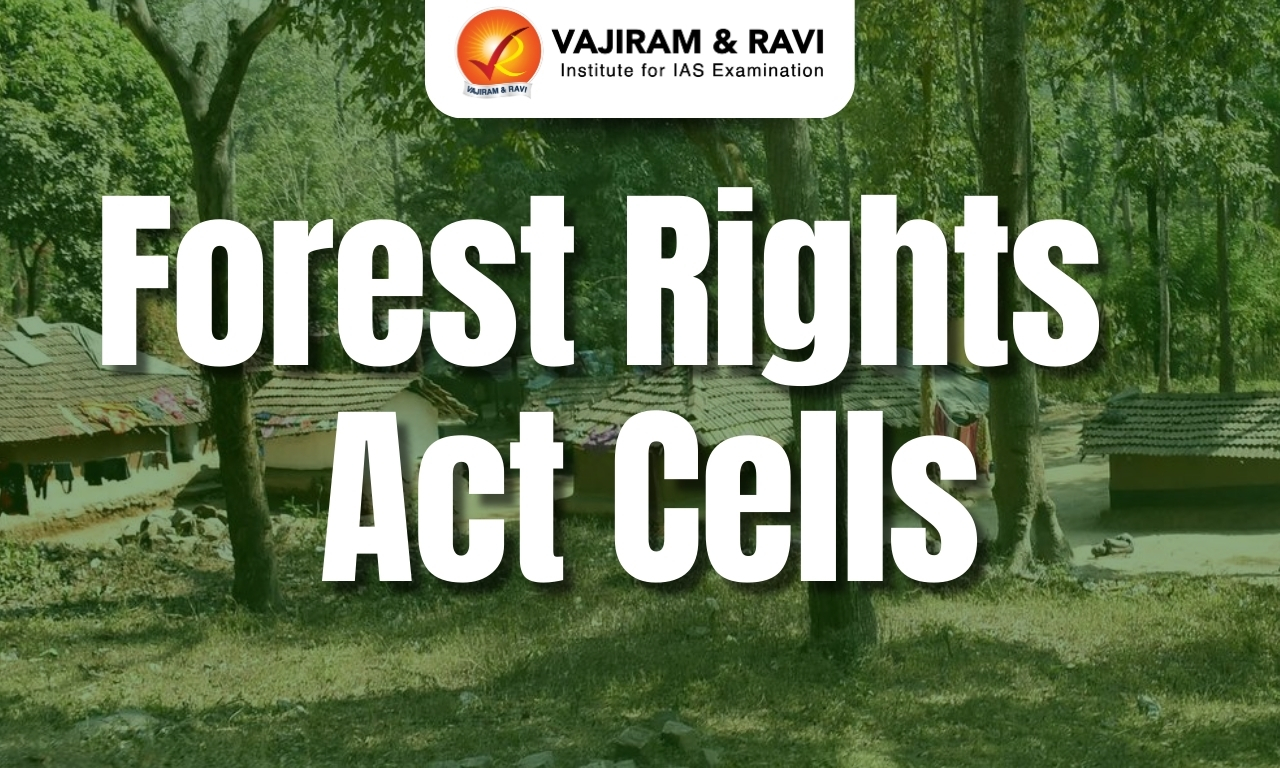Sahariya Tribe Latest News
Recently, in Madhya Pradesh, a Sahariya tribal woman’s death puts spotlight on unending urea queues.
About Sahariya Tribe
- It is one of the Particularly Vulnerable Tribal Groups (PVTG).
- The Sahariya community is also called by the names Seher, Sair, Savar, Saonar, Sahra, etc.
- They live on the margins — in the forests and villages of Madhya Pradesh and Rajasthan.
Living condition and Social Structure of Sahariya Tribe
- They mostly live in a distinct settlement called ‘Seharana’ which is generally a cluster of houses.
- The houses are made of some stone boulders, and the roofing is also made of stone slabs – locally called Patore. In some villages, mud structures are also constructed.
- Religion and Language
- Language: While the Sahariyas have lost their original language, they speak the local dialects of the regions they inhabit.
- The Sahariya practice their traditional ethnic religions.
- They are known for their dance, the Saharia Swang, which is performed during the month of Holi.
- The dance is performed to the beats of the dhol, nagari, and matki.
- It features a male dressed in female attire who dances around the male performers.
- Livelihood: They are predominantly forest dwellers and make their living from forest produce, additionally cultivating small plots of land and work as landless labourers.
- They are particularly skilled in making catechu from khair trees.
Source: IE
Last updated on February, 2026
→ UPSC Notification 2026 is now out on the official website at upsconline.nic.in.
→ UPSC IFoS Notification 2026 is now out on the official website at upsconline.nic.in.
→ UPSC Calendar 2026 has been released.
→ UPSC Final Result 2025 is expected to be released in the first week of March 2026.
→ Check out the latest UPSC Syllabus 2026 here.
→ Join Vajiram & Ravi’s Interview Guidance Programme for expert help to crack your final UPSC stage.
→ UPSC Mains Result 2025 is now out.
→ UPSC Prelims 2026 will be conducted on 24th May, 2026 & UPSC Mains 2026 will be conducted on 21st August 2026.
→ The UPSC Selection Process is of 3 stages-Prelims, Mains and Interview.
→ Prepare effectively with Vajiram & Ravi’s UPSC Prelims Test Series 2026 featuring full-length mock tests, detailed solutions, and performance analysis.
→ Enroll in Vajiram & Ravi’s UPSC Mains Test Series 2026 for structured answer writing practice, expert evaluation, and exam-oriented feedback.
→ Join Vajiram & Ravi’s Best UPSC Mentorship Program for personalized guidance, strategy planning, and one-to-one support from experienced mentors.
→ Check UPSC Marksheet 2024 Here.
→ UPSC Toppers List 2024 is released now. Shakti Dubey is UPSC AIR 1 2024 Topper.
→ Also check Best UPSC Coaching in India
Sahariya Tribe FAQs
Q1. What is the traditional dance of the Sahariya tribe?+
Q2. What is the traditional occupation of the Sahariya tribe?+
Tags: prelims pointers sahariya tribe upsc current affairs upsc prelims current affairs


















